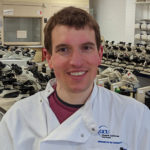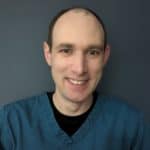Profile
Stephen Jackson
-
About Me:
I am married and live with my wife in West Bridgford, Nottinghamshire. I have one daughter who is a clinical psychologist who specialises in clinical neuropsychology, and I have two grandchildren.
Outside of work, my interests include horse riding (I have owned horses since the 1990’s and try to ride several times each week), film, food, and most importantly spending time with my grandchildren. I am also teaching myself to play the guitar which is progressing slowly!
-
My pronouns are:
Stephen or Professor Jackson, he/him.
-
My Work:
I am Professor of Cognitive Neuroscience within the School of Psychology at the University of Nottingham and have been an academic psychologist since completing my PhD in 1991. I am also a Founding Director of a medical device company, Neurotherapeutics Ltd, that was established to deliver non-invasive brain stimulation therapies for mental/brain health conditions. My research falls within the area of neuropsychology. Thus, I am primarily interested in understanding how the brain gives rise to our thoughts and our behaviour, and understanding how alterations in these brain mechanisms/processes can give rise to mental/brain health conditions. To investigate this issue, my research team use a variety of approaches including brain imaging and brain stimulation techniques as well as clinical/behavioural studies in individuals with mental/brain health conditions.
-
Read more
A key focus of my current research is to understand the brain mechanisms that give rise to unwanted thoughts and behaviours and to develop novel treatments for mental/brain health conditions associated with them (e.g., Tourette syndrome, Obsessive-compulsive disorder). In particular, my colleagues and I are working on developing the next generation of wearable therapeutic devices for delivering therapy in community settings rather than in the clinic.
-
My Typical Day:
I tend to wake up and breakfast early as most days I have meetings that typically begin around 9am. On days when I am not engaged in teaching or administration duties, I can focus on my research activities (which is the most fun) and can involve a variety of activities such: meeting my research team to plan new studies or review research findings; analysing data; writing-up the results of our studies for public dissemination; writing research grants to obtaining funding for new research; planning public talks on our results; and occasionally find time to read the work of other people to keep up with my field.
I also carry out a range scientific duties nationally and internationally that contribute to the field more generally. This involves editing scientific journals (where research findings are published), reviewing and commenting on papers submitted to such journals, reviewing and commenting on applications for funding.
Ideally, I try to finish work by 5pm so I have some time for other activities, particularly in the Summer months.
-
What I'd do with the prize money:
Use it to raise the profile of brain health conditions such as Tourette syndrome which are widely misunderstood, although people like Lewis Capaldi, who visited by research group recently, are helping to raise public awareness.
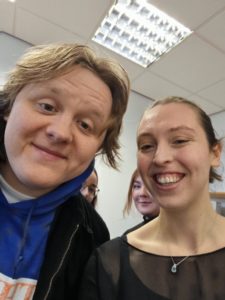
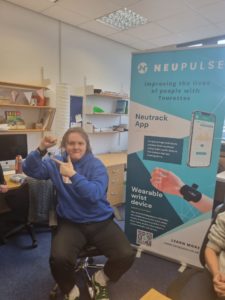
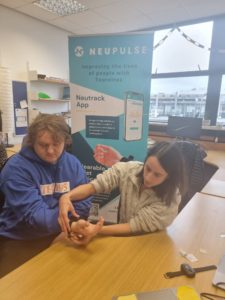
-
Education:
I went to the London Nautical School (it wasn’t my choice but my mother liked the uniform). I left School at 16 to join the Police Cadets.
-
Qualifications:
BA Psychology
PhD Experimental Psychology
-
Work History:
My route into academic psychology was definitely non-standard. My father was police officer and early on in my childhood I decided I really wanted to be a policeman. I left school at 16 years old to join the police cadets and then joined the Metropolitan Police in 1976. During my time in the police I started as a probationary constable in London’s West end (Soho and Mayfair), joined the Diplomatic Protection Group and carried out armed protection duties, including protecting the Prime Minister of the day, became a Sergeant in Westminster (parliament and Buckingham Palace), and Romford. During my time in the police I studied for a part-time degree in Psychology I found it fascinating, and soon decided that I really wanted to be a professional psychologist. I left the police in 1987 to read for a PhD at the University of Cambridge and on completion of my PhD I obtained a Fellowship from the Medical Research Council (MRC) to continues my studies at the University of Oregon in the USA. From Oregon I then moved to take up a lectureship at the University of Wales (Bangor) in 1993 and from there moved to take up my professorship at the University of Nottingham in 1999, where I have been ever since. That said, in 2009 I was seconded for several years to spend part of each year at Korea University in Seoul, South Korea. My role there was to lead a research group in Korea in neuromodulation (brain stimulation) and to help set up a new department in Brain and Cognitive Engineering. One thing that my career path demonstrates is that you can approach a career in STEM from many directions, and that a career in STEM can lead to a great deal of foreign travel.
-
Current Job:
Professor of Cognitive Neuroscience
-
Employer:
University of Nottingham
-
My Interview
-
How would you describe yourself in 3 words?
Horse riding neuropsychologist
What did you want to be after you left school?
Policeman
Were you ever in trouble at school?
Probably
If you weren't doing this job, what would you choose instead?
Retiring
Who is your favourite singer or band?
Aimee Mann, Paul Heaton, and recently Lewis Capaldi
What's your favourite food?
Korean
-

